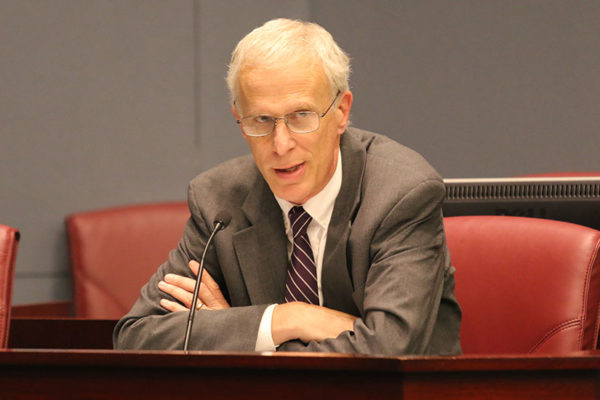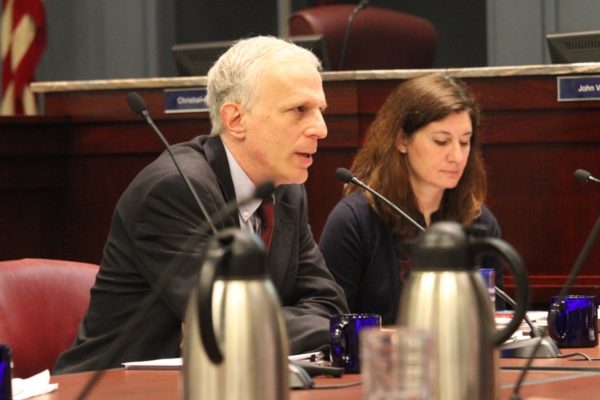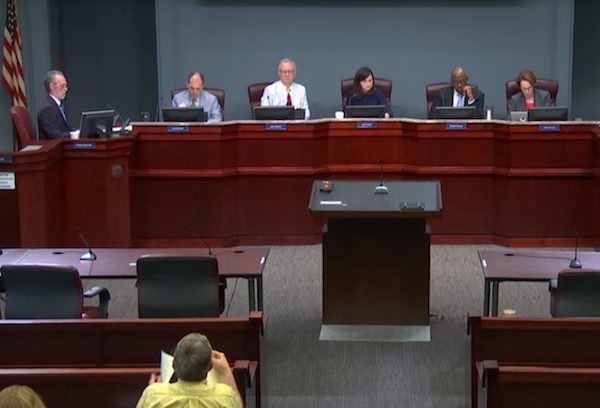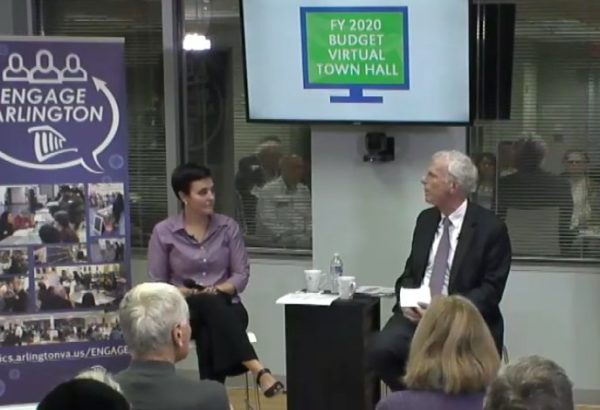Arlington County Manager Mark Schwartz’s proposed budget is expected to include a relatively modest $5 million in cuts, but that includes the elimination of about 32 county government jobs.
The early word on the budget comes from an email sent to county staff yesterday by Schwartz and obtained by ARLnow. Schwartz is scheduled to formally present his budget proposal next Thursday, Feb. 21.
The size of the reductions is much smaller than initially feared. Schwartz initially warned that the county was facing a $20-35 million gap.
Schwartz said that the county will work with affected employees to help them find and apply for vacant county government positions.
The manager’s proposed budget is one of the first concrete steps in a months-long process that culminates with the County Board’s adoption of a final budget in April. Arlington Public Schools, meanwhile, is facing its own budget challenges in the midst of continued enrollment growth and school construction.
The email from Schwartz is below.
February 13, 2019
To: All County Employees
As we get closer to submission of my proposed FY 2020 Budget to the County Board (a work session will be held February 21), I wanted to update you on the contents and timeline.
My proposed budget will include more than $5 million in proposed reductions – far less than the $20 to $35 million gap discussed last
Fall. My base budget includes elimination of about 32 positions – about 2/3 of which are currently filled. Affected employees will find out this week about the proposals.In addition, the proposed budget will continue my commitment to the compensation maintenance plan for all general employees and the added commitments to Police, Fire and Sheriff staff included in the County Board adopted pay philosophy.
Next week I will provide you with more detailed information. Until then, those employees who might be affected by some of the proposed cuts are going through a difficult time. We are encouraging them to pursue vacant County positions and will do our best to match their skills with those vacancies. Our Employee Assistance Program (EAP) is also a great resource and support for all County employees during this time.
These cuts involve difficult choices. The County Board does not adopt a final budget until April 2019, and I will continue to keep you
updated as we learn more. Again, thank you for your continued commitment and support for Arlington County. I am grateful each day for Arlington’s dedicated workforce.Sincerely,
Mark J. Schwartz
County Manager










